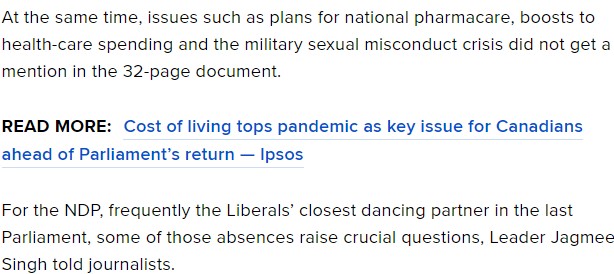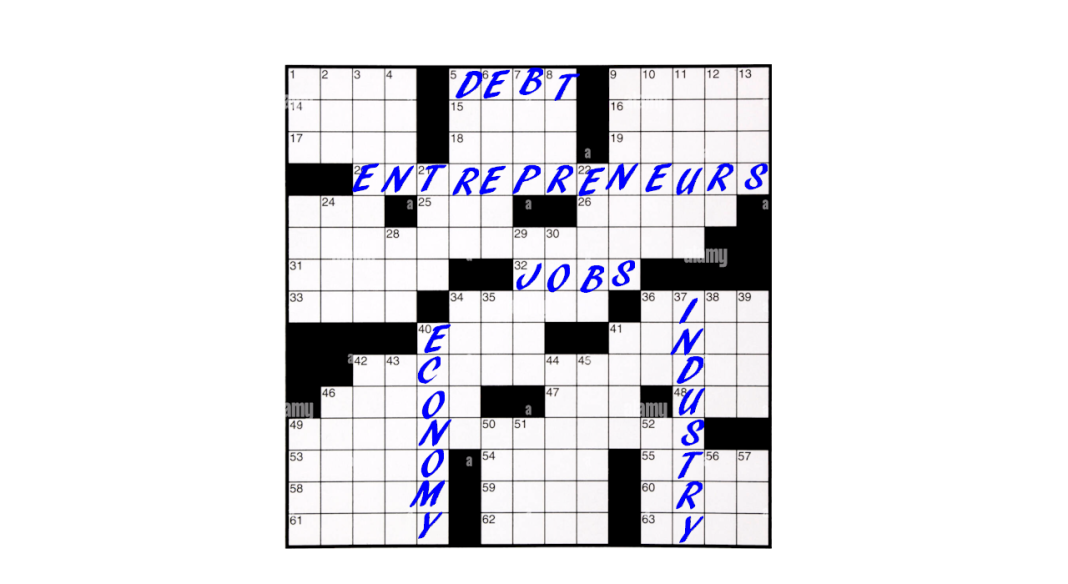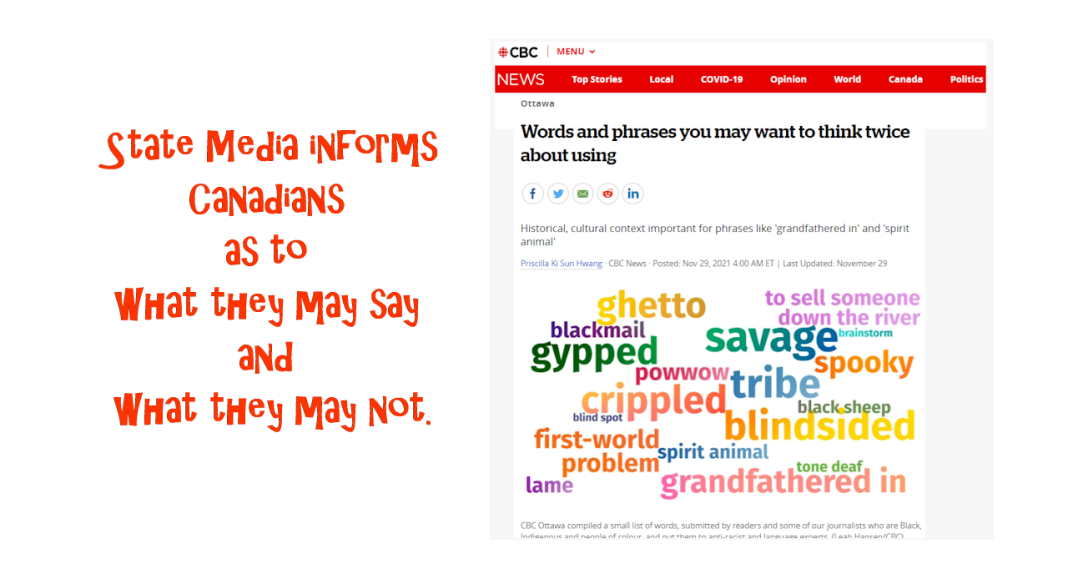If you didn’t listen to the purple-haired lady read Justin Trudeau’s throne speech, you might want to know what was said, and what wasn’t. You might appeal to the “news” media for that. And that would be a mistake.
My headline lists some of the words completely missing or mostly missing in the throne speech, as noticed by me, millions of normal Canadians, global investors and investors like me right here at home, mothers, fathers, homebuyers, retirees, business owners, workers writ large, and a couple of observant folks at the Fraser Institute: authors Jason Clemens and Jake Fuss. Words and phrases like debt, deficit, inflation, investment, business, entrepreneurs, the private sector, and so on, were all missing or mentioned only dismissively or in passing.
If I were a reporter, I’d be all over that. It’s an important thing to point out if only to exemplify how far we’ve strayed as a nation.
It was written up in the Institute’s blog (see reprint below), which, granted, speaks to their interests. But I feel like their interests are more in line with Canada’s than most of the “news” media on any given day. They are certainly more in line with mine. The Institute’s “mission is to improve the quality of life for Canadians, their families, and future generations by studying, measuring, and broadly communicating the effects of government policies, entrepreneurship, and choice on their well-being.”
I can only wish the news media did that.
The Institute further describes itself as “an independent, non-partisan research and educational organization based in Canada.” Can the news media really truthfully contend that they are “an independent, non-partisan research organization” that seeks to “educate Canadians” about what’s important? (And for some media, “based in Canada” is even a point of contention.)
None of the news media pointed out these lacking words as far as I can tell. The crack journalists at Global News apparently missed all those missing words, for example. Their headline is “Pharmacare, military sexual misconduct among vows absent in Trudeau throne speech.” Really?
What Global News primarily noticed missing were the words “national universal pharmacare” — a mostly NDP campaign issue, and “sexual misconduct” — an ongoing issue of some general concern on the list of concerns. And they have a couple of other honorable mentions: “the disproportionate economic impact of the pandemic on women” (in her — the reporter’s — own words, not a quote from some NDP pundit or concern mentioned by anyone else in the article. I guess she’s reporting on her own feelings, or something), and the article notes the missing words promising an increase in the national universal healthcare spending.
I often say the NDP exists only because the “news” media props them up. Again and again, I’m proven correct. The reporter quoted the leader of the NDP, Jagmeet Singh, in her “news” article — and yes, Singh is ever-so concerned about universal national social programs like “pharmacare” as any socialist would be (and he’s right up in there on other Canadian issues like the courtroom dramas in Wisconsin for some reason, about which he obviously knows exactly nothing and thus he utterly beclowns himself on Twitter). But Singh and the NDP are the FOURTH-place party in parliament. If she’d asked the actual opposition leader instead of Trudeau’s “dancing partner” (as she called Singh), Erin O’Toole might (alas, a big might) have mentioned the missing words “inflation,” “entrepreneurship,” private enterprise,” etc. But O’Toole’s words are… missing. Apparently, he wasn’t even asked. Couldn’t get O’Toole on the horn? Or didn’t want to hear from him? Or she would rather you not hear from him?
The reporter writes in her bio that “She loves to dig for the things officials would rather people not hear about, and many of her most impactful stories come through the creative filing of access to information requests.”
There are a whole lot of words and concepts and people I’m not hearing in her reporting.
Not one reporter or editor at Global noticed the lack of the words “cost of living,” “inflation,” “housing costs,” “private investment,” and “business” by those “officials?”
Hilariously, right there in the middle of the Global article is one of those “READ MORE” distractions, directing readers to their related throne speech stories — this one on the latest Ipsos poll: “Cost of living tops pandemic as key issue for Canadians…”:
Apparently, Global reporters don’t read Global articles written by other Global reporters, and their editors are oblivious.
Again, inflation wasn’t even mentioned in the throne speech despite its obvious — as reported! — importance to Canadians, and Global similarly didn’t report that point; yet there it is, a READ MORE article demonstrating that it’s the most important thing to Canadians, right there in the middle of the Global article in which they don’t mention the most important thing to Canadians missing from the throne speech. Yeeehaa!
(By the way, vis-a-vis that poll, “pharmacare” didn’t even rank in the top five according to the Ipsos poll as reported in the apparently unread-by-Global-reporters Global Ipos poll story. In fact as far as “missing words” go, Ipsos itself doesn’t even mention the word “pharmacare” in their own news release. Nor “sexual misconduct” for that matter. Another fun fact: the Fraser Institute blog post I’m referring to (below) links to Global News’ own reporting on the Ipsos poll about inflation being the major issue. No such linking to the FI from Global News!)
Many reporters now just blithely reveal their left-wing bias and progressive worldview — and their obviously blinkered view of what’s important to Canadians. Those things that are actually important to Canadians are trumped by their own concerns and their own biases. The fact that they write it up as a “news” story, not even an op/ed, and trying to lead us to believe they’re telling us the complete, whole, unvarnished, factual story, as news stories are supposed to do, is not going to help a news media already deservedly suffering from increasing distrust, and the credible feeling by Canadians that there is a growing disconnect between what they read in the news, and what they see as actually happening or what is actually important to them.
They could have done a lot worse than contacting Erin O’Toole, or the Fraser Institute, to see what they thought of the throne speech —they then could have at least added to the list of words missing from the stupid speech. Words that actually matter to Canadians, as opposed to journalists. They could have contacted a random Canadian from the phonebook, if polls are to be believed. But (to borrow a phrase from the reporter’s own bio), I think they would “rather people not hear about” certain things from certain people. Whether that’s by laziness, or on purpose and driven by sheer ideological and political bias, is anybody’s guess. I have my guesses.
![]()
Here are the words that Clemens and Fuss found but Global News and the others all didn’t:
Throne speech exposes Trudeau government’s economic ignorance
— November 25, 2021
Authors: Jason Clemens and Jake FussOn Tuesday, Mary Simon, the new Governor General of Canada, delivered the federal government’s throne speech. Most of the analysis and commentary has been on the Trudeau government’s focus on Indigenous reconciliation, climate change and an active role for Ottawa in the economy. What’s most telling, though, is what was missing from the speech.
According to the formal text available from the Government of Canada, the throne speech totalled 2,777 words. Yet there was not a single mention of “entrepreneurs” or “entrepreneurship” and their role in economic growth or recovery.
There was a single reference to “business,” but it was with respect to the benefits of government subsidies keeping “businesses” afloat during the pandemic. And there was only mention of “investment” but it too referred to the government’s “investment” that stabilized families and businesses during the COVID lockdowns. In other words, there was not a single reference to businesses or private-sector investment and their importance in growing the economy.
This is obviously worrying given how recent research has shown a decline in entrepreneurship and collapse in business investment, which are both widely accepted as being necessary for economic growth and prosperity.
The speech also completely ignored the dismal state of federal government finances. The terms “deficit” and “debt” weren’t mentioned once despite a recent analysis by the Parliamentary Budget Officer, which estimated that Ottawa would not balance its budget until 2070.
Contrast the lack of references to entrepreneurs, businesses and investment to the 35 references to the “government.” There’s a clear implication from the speech’s text—the Trudeau government sees a more active role for politicians and bureaucrats in the economy as key to prosperity rather than a larger role for entrepreneurs and businesses. Indeed, one could argue that entrepreneurs and businesses remain an afterthought in Trudeau’s Ottawa.
There’s another omission worthy of note, which is that “inflation” was only mentioned once in the speech despite it polling as one of the largest concerns for Canadians. The speech acknowledged inflation as a “challenge” but then offered two non-solutions—specifically, that investments in housing and child care will mitigate the cost of living.
Here, the government’s approach is incorrect for a number of reasons. First, spending in the future on housing and child care does nothing today (or in the immediate future) to stem inflation. Moreover, the government’s proposed policies on housing, which include increasing the First-Time Home Buyers Tax Credit and introducing a tax-free First Home Savings Account, will stimulate demand—which ultimately means more upward pressure on housing prices. And finally, as the government’s deficit-spending is currently financed by the Bank of Canada, this additional spending will cause more inflation as the money supply expands.
Unfortunately for Canadians, Tuesday’s throne speech confirms that the Trudeau government plans to continue on the same path it’s been on since first elected in 2015, which has led to slower economic growth, weak private-sector job creation, declining entrepreneurship and a collapse in business investment. All these trends must be reversed for the economy to improve.
- Proud To Be Canadian. But Maybe Not. - Tuesday December 17, 2024 at 2:07 pm
- Say something. - Friday October 25, 2024 at 6:03 pm
- Keep going, or veer right - Monday August 26, 2024 at 4:30 pm





